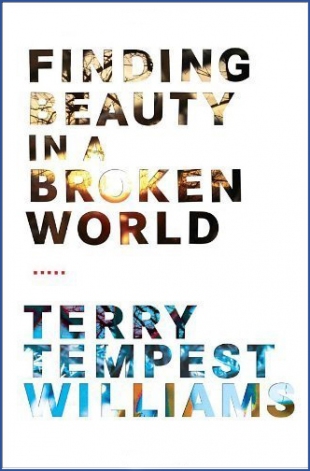"A coalition of environmental groups, Forest Guardians, Center for Native Ecosystems, The Southern Utah Wilderness Alliance, and the Escalante Wilderness Project, along with concerned individuals, are petitioning the U.S. Fish and Wildlife Service to reclassify the Utah prairie dog from 'threatened' to 'endangered' status under the Endangered Species Act.
"I offer my own opinion to The New York Times, on Groundhog Day, 2003, just weeks before we invade Iraq.
. . As we find ourselves on the eve of war with Iraq, why should we care about the fate of a rodent, an animal many simply see as a 'varmint.' Why should we as citizens of the United States of America with issues of terrorism, weapons of mass destruction, racism, and a shaky economy care about the status and well-being of an almost invisible animal that spends half of its life underground in the western grasslands of this nation?
Quite simply, because the story of the Utah prairie dog is the story of the range of our compassion. If we can extend our idea of community to include the lowliest of creatures, call them 'the untouchables,' then we will indeed be closer to a path of peace and tolerance. If we cannot accommodate 'the other,' the shadow we will see on our own home ground will be the forecast of our own species' extended winter of the soul.
"J. M. Coetzee in his book, The Lives of Animals, creates a character named Elizabeth Costello, a novelist, who defends the rights of animals before a skeptical university audience. She argues that 'there is no limit to the extent to which we can think ourselves into the being of another.'
"Her response is met by a professor of philosophy, Dr. Thomas O'Hearne: 'We may certainly wish for there to be community with animals, but that is not the same thing as living in community with them. It is just a piece of prelapsarian wistfulness.'
"Most people are not comfortable making a connection between racism and specism or the ill treatment of human beings and the mistreatment of animals. We want to keep our boundaries clean and separate. But isn't that the point, to separate, isolate, and discriminate? We create hierarchies, viewing life from the top down, top being, of course, God, then a ranking of human races, and so our judgments move down 'the Great Chain of Being' until we touch rocks. This is the attitude of power, and it hinges on who is in control. Who has power over whom? How does this kind of behavior infiltrate the psyche of a culture? And what are the consequences of scala naturæ?
"Arrogance is arrogance, and cruelty committed to a person or an animal is cruelty. We would rather not think too much about 'what is being done to those outside the sphere of the favored group,' yet I believe it is time in the evolution of our imagination to make a strong case for the extension of our empathy toward the Other.
"Again, Elizabeth Costello: 'Anyone who says that life matters less to animals than it does to us has not held in his hands an animal fighting for its life. The whole of the being of the animal is thrown into that fight, without reserve.' "
